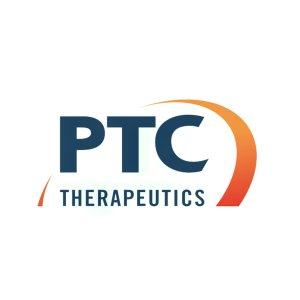CHMP Issues Negative Opinion for Renewal of Conditional Marketing Authorization for Translarna™ (ataluren) Following Re-examination Procedure
"We are disappointed that the CHMP has maintained its negative opinion on the Translarna authorization which will result in the withdrawal of a therapy for patients in
Per European regulations, the European Commission has 67 days to adopt the opinion.
About Translarna™ (ataluren)
Translarna (ataluren), discovered and developed by PTC Therapeutics, is a protein restoration therapy designed to enable the formation of a functioning protein in patients with genetic disorders caused by a nonsense mutation. A nonsense mutation is an alteration in the genetic code that prematurely halts the synthesis of an essential protein. The resulting disorder is determined by which protein cannot be expressed in its entirety and is no longer functional, such as dystrophin in Duchenne. Translarna, the tradename of ataluren, is licensed in multiple countries for the treatment of nonsense mutation Duchenne muscular dystrophy (nmDMD) in ambulatory patients aged 2 years and older. Ataluren is an investigational new drug in
About Duchenne Muscular Dystrophy (Duchenne)
Primarily affecting males, Duchenne is a rare and fatal genetic disorder that results in progressive muscle weakness from early childhood and leads to premature death in the mid-20's due to heart and respiratory failure. It is a progressive muscle disorder caused by the lack of functional dystrophin protein. Dystrophin is critical to the structural stability of all muscles, including skeletal, diaphragm, and heart muscles. Patients with Duchenne can lose the ability to walk (loss of ambulation) as early as 10 years old, followed by loss of the use of their arms. Duchenne patients subsequently experience life-threatening lung complications, requiring the need for ventilation support, and heart complications in their late teens and 20s.
About PTC Therapeutics, Inc.
PTC is a global biopharmaceutical company focused on the discovery, development and commercialization of clinically differentiated medicines that provide benefits to patients with rare disorders. PTC's ability to innovate to identify new therapies and to globally commercialize products is the foundation that drives investment in a robust and diversified pipeline of transformative medicines. PTC's mission is to provide access to best-in-class treatments for patients who have little to no treatment options. PTC's strategy is to leverage its strong scientific and clinical expertise and global commercial infrastructure to bring therapies to patients. PTC believes this allows it to maximize value for all its stakeholders. To learn more about PTC, please visit us at www.ptcbio.com and follow us on Facebook, Instagram, LinkedIn and Twitter at @PTCBio.
For More Information:
Investors:
Kylie O'Keefe
+1 (908) 300-0691
kokeefe@ptcbio.com
Media:
Jeanine Clemente
+1 (908) 912-9406
jclemente@ptcbio.com
Forward-Looking Statement
This press release contains forward-looking statements within the meaning of The Private Securities Litigation Reform Act of 1995. All statements contained in this press release, other than statements of historic fact, are forward-looking statements, including statements regarding: the future expectations, plans and prospects for PTC, including with respect to the commercialization of its products and product candidates; the European Commission's potential adoption of the CHMP's negative opinion for Translarna (ataluren); the clinical utility and potential advantages of Translarna; PTC's strategy, future operations, future financial position, future revenues, projected costs; and the objectives of management. Other forward-looking statements may be identified by the words "guidance", "plan," "anticipate," "believe," "estimate," "expect," "intend," "may," "target," "potential," "will," "would," "could," "should," "continue," and similar expressions.
PTC's actual results, performance or achievements could differ materially from those expressed or implied by forward-looking statements it makes as a result of a variety of risks and uncertainties, including those related to: the outcome of pricing, coverage and reimbursement negotiations with third party payors for PTC's products or product candidates that PTC commercializes or may commercialize in the future; PTC's ability to maintain its marketing authorization of Translarna for the treatment of nmDMD in
As with any pharmaceutical under development, there are significant risks in the development, regulatory approval and commercialization of new products. There are no guarantees that any product will receive or maintain regulatory approval in any territory, or prove to be commercially successful, including Translarna.
The forward-looking statements contained herein represent PTC's views only as of the date of this press release and PTC does not undertake or plan to update or revise any such forward-looking statements to reflect actual results or changes in plans, prospects, assumptions, estimates or projections, or other circumstances occurring after the date of this press release except as required by law.
![]() View original content:https://www.prnewswire.com/news-releases/chmp-issues-negative-opinion-for-renewal-of-conditional-marketing-authorization-for-translarna-ataluren-following-re-examination-procedure-302045154.html
View original content:https://www.prnewswire.com/news-releases/chmp-issues-negative-opinion-for-renewal-of-conditional-marketing-authorization-for-translarna-ataluren-following-re-examination-procedure-302045154.html
SOURCE PTC Therapeutics, Inc.







